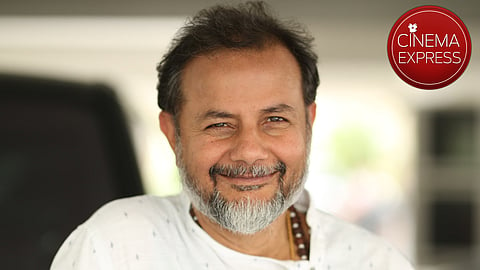

Director Mukesh Kumar Singh says he came into Kannappa not as a scholar of its source material, but as a seeker. “When I started, I didn’t know much about this story,” he admits. “But when I commit to a subject, I research it myself. I don’t just depend on writers or assistants. I read every article, watched every video, visited temples, and spoke with priests to understand what this story really meant,” He pauses and adds, “You cannot direct something like Kannappa without feeling its soul.”
Kannappa, produced by and starring Vishnu Manchu, is a mythological action epic rooted in the tale of a tribal devotee of Lord Shiva. The film features an ensemble cast including Akshay Kumar, Prabhas, Mohanlal, and Kajal Aggarwal. Singh, best known for directing a significant portion of the epic television series Mahabharat, steps into big-screen storytelling with this one.
He recounts how it all began with a phone call from an actor who had worked with Vishnu. Singh says, “He told me Vishnu ji was looking for someone to direct something big. Soon after, Vishnu called me himself and invited me to meet in Hyderabad. We spoke for hours. It was only later, after a second meeting, that he offered me the film.”
Singh speaks of that turning point with passion and says, “He said, ‘You have directed Mahabharat, so I believe you can bring this to life.’ And from that moment, I knew this was going to be something special.”
The director’s transition from television to film feels natural to him. “Whether it’s TV or cinema, for me it’s storytelling,” he explains, “Many of my TV shows had budgets bigger than 80% of the films being made. Mahabharat was a 200-crore project. But cinema is like a novel, something you preserve. You read it, keep it on your shelf. Television is a newspaper read and forgotten.”
What makes this film distinct, he believes, is its emotional thread. “Yes, there is a lot of action,” he says, “but from the first scene to the last, there’s an undercurrent of devotion, identity, and transformation. This is not just a film about a miracle. It’s about how a man with nothing becomes the greatest devotee.”
Singh is conscious of the legacy he is stepping into. “There have been films on Kannappa before,” he acknowledges, “but I have seen them all, and we knew we had to create something new, something that would speak to this generation.”
He further explains why they chose New Zealand as the shooting location, “We shot in New Zealand because the kind of pristine natural beauty required to recreate second-century India doesn’t exist in one place here. It’s not that India lacks beauty, but logistics, roads, distances all of that makes it impossible in a tight schedule.”
He recalls the meticulous effort to visualise the period elements. “Our art director Chinna ji, our international team all worked to make the visuals authentic,” he says and adds, “Every prop, every weapon, every location was chosen with care.”
But Singh is most passionate when speaking about the veteran Mohan Babu. He says, “Mohan Babu ji was incredibly focused. As a producer, he’s generous. But as an actor, he becomes a different person on set. He’s quiet, prepared, and completely immersed in the character. Even after doing 600 films, he still asks, ‘Am I pronouncing this dialogue right?’ That humility was inspiring.”
Though the story of Kannappa has many versions, Singh explains that their focus was to find the version that best suited the soul of the film. “You’ll find 20 different stories if you look. We chose what worked for our narrative. The soul, the eye donation and the sacrifice remain untouched. We aimed for something extraordinary with Kannappa,” he states.
Addressing a controversy over a character’s name, Singh says, “It was not intentional. If anyone felt hurt, we are sorry. We’ve already made the changes. I myself am a Brahmin. I do not believe in higher or lower caste. We belong to a culture where even a Shudra could be a saint.”
As for what comes next, Singh says, “Right now, it’s all about Kannappa. Let the audience watch. Then I’ll talk about what’s next.” But he admits he is working on adapting Mahabharata to the big screen, “I have started script work but I will talk about that later,” he concludes.